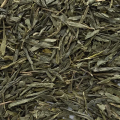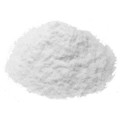 Loading... Please wait...
Loading... Please wait...- Home
- About Us
- Shipping, Returns & FAQ's
- Contact Us
-
For Your Information
- Canadian Customers Have a Choice if Shipping Via UPS
- Aura Cacia Homemade Aromatherapy Recipes
- Bella Nella Altered Art & Paper Crafts Blog
- Forms of Herbal Preparations
- Laundry Tips To Conserve Energy Blog from The Laundress
- The Story of Frontier Natural Products Co-Op
- Sovereign Silver Hydrosol and Aloe Protocol Stops Downward Spiral of Gut Dysbiosis
- Disclaimers
- Recommended Links
- RSS/Recent News
- The Story of Typhoon Housewares
- Reviews/Testimonials
- Raw Ingredients for Mfg
- Home
- Supplements
- Herb, Single
- Liquid Extract/Tonic
- Pleurisy Root Liquid Extract Golden Lotus
- Home
- Supplements
- Asthma/Bronchitis/Lungs/Respiratory/Sinus
- Pleurisy Root Liquid Extract Golden Lotus
Pleurisy Root Liquid Extract Golden Lotus
Product Description

![]() Supports healthy respiratory system*
Supports healthy respiratory system*
Pleurisy root is used for coughs, swelling of the lining of the lungs (pleurisy), swelling of the air sacs in the lungs (pneumonitis), swelling of the airways (bronchitis), influenza, and swine flu. It is also used to treat disorders of the uterus, muscle spasms, and pain; to loosen mucus so it can be coughed up; and to promote sweating.
Pleurisy is a root that’s native to North America and has been used for thousands of years by Native Americans to treat health conditions. It’s still used in the Americas for treating respiratory problems, but isn’t as widely used worldwide.
Of course pleurisy root can be used to treat pleurisy itself. In fact, it is very good at treating pain and reducing the inflammation of the lung tissues when you suffer from pleurisy. It can also help to thin the mucus so that when you do cough, you actually help to move fluid out of the lungs.
Often when people suffer from pleurisy or another type of respiratory infection, they feel a painful tightness. Pleurisy root can help to loosen the tightness you feel and bring relief.
Pleurisy root can also treat problems in the digestive system. If you have problems with chronic diarrhea, you may want to add pleurisy root to your daily routine. It can help to promote a healthy bowel system that will allow you to become more regular. Pleurisy root can also be used as a companion treatment for dysentery.
When you have a fever, pleurisy root can help to bring relief. It promotes sweating so that your body’s natural cooling system can get to work. You’ll feel the heat evaporate away as your body returns to a more normal temperature.
Pleurisy root is usually taken as a tincture or as a tea. You’ll want to use it two or three times a day to get the most benefit from it. While pleurisy is safe when used correctly, you’ll want to avoid it if you’re pregnant. You’ll also want to make sure you don’t take too much. An overdose of pleurisy root can cause you to vomit.
If you’re looking for a solution to treat your problems with painful pleurisy or you feel like you need a good fever remedy, pleurisy is a great choice. If you suffer from chronic diarrhea, you may also want to give pleurisy root a shot at treating your symptoms. Pleurisy root is a natural remedy that promotes good health.
Constituents
The root contains a glucosidal principle, Asclepiadin, which occurs as an amorphous body, is soluble in ether, alcohol and hot water. It also contains several resins, and odorous fatty matter, and a trace of volatile oil. It yields not more than 9 per cent of ash.
Medicinal Action and Uses: Antispasmodic, diaphoretic, expectorant, tonic, carminative and mildly cathartic.
From early days this Asclepias has been regarded as a valuable medicinal plant. It is one of the most important of the indigenous American remedies, and until lately was official in the United States Pharmacopoeia.
It possesses a specific action on the lungs, assisting expectoration, subduing inflammation and exerting a general mild tonic effect on the system, making it valuable in all chest complaints. It is of great use in pleurisy, mitigating the pain and relieving the difficulty of breathing, and is also recommended in pulmonary catarrh. It is extensively used in the Southern States in these cases, also in consumption, in doses of from 20 grains to a drachm in a powder, or in the form of a decoction.
It has also been used with great advantage in diarrhoea, dysentery and acute and chronic rheumatism, in low typhoid states and in eczema. It is claimed that the drug may be employed with benefit in flatulent colic and indigestion, but in these conditions it is rarely used.
In large doses it acts as an emetic and purgative.
A teacupful of the warm infusion (1 in 30) taken every hour will powerfully promote free perspiration and suppressed expectoration. The infusion may be prepared by taking 1 teaspoonful of the powder in a cupful of boiling water.
The decoction is taken in doses of 2 to 3 fluid ounces.
The dose of the fluid extract is 1/2 to 1 drachm; of Asclepin, 1 to 4 grains.
A much recommended herbal recipe is: Essence of composition powder, 1 OZ.; fluid extract of Pleurisy Root, 1 OZ. Mix and take a teaspoonful three or four times daily in warm sweetened water.
It is often combined with Angelica and Sassafras for producing perspiration in fever and pleurisy and for equalizing the circulation of the blood.
Botanical Name: asclepias tuberosa
aka: Asclépiade, Asclépiade Pleurétique, Asclépiade Tubéreuse, Asclepias tuberosa, Butterfly Weed, Canada Root, Chigger Flower, Flux Root, Orange Milkweed, Orange Swallow Wort, Racine du Canada, Racine Colique, Racine de Flux, Racine de Tubercule, Silkweed, Swallow Wort, Tuber Root, Vencetósigo, White Root, Wind Root.
Origin: USA
Notes: Kosher Certified. Non-irradiated
Specifications are subject to change without notice.
References
webmd
botanical.com
Find Similar Products by Category
You Recently Viewed...
Currency Converter
Choose a currency below to display product prices in the selected currency.




























